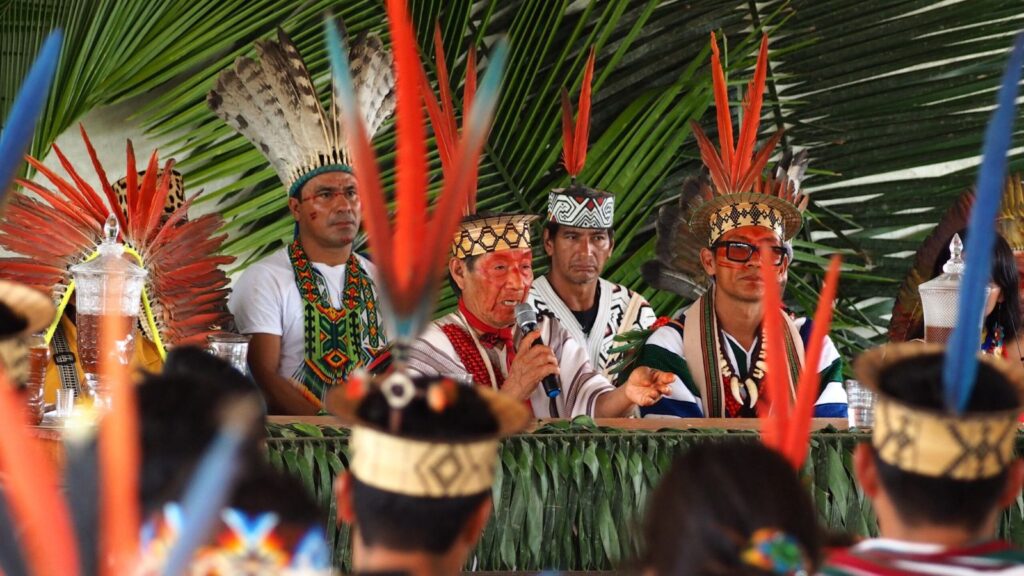This article is from Emergency: This Book Will Save Your Life, recently published by Harpers.
I 've begun to look at the world through apocalypse eyes.
It usually begins in airports. That's when I get the first portent of doom. I imagine explosions, sirens, walls blown apart, bodies ripped from life.
Then, as I gaze out of the taxi window after arriving in a new
city, I see people bustling around on their daily routine, endless rows of office buildings and tenements teeming with activity, thousands of automobiles rushing somewhere important. And it all seems so solid, so permanent, so unmovable, so absolutely necessary.
But all it would take is one war, one riot, one dirty bomb, one natural disaster, one marauding army, one economic catastrophe, one vial containing one virus to bring it all smashing down. We've seen it happen in Hiroshima. In Dresden. In Bosnia. In Rwanda. In Baghdad. In Halabja. In New Orleans.
Our society, which seems so sturdily built out of concrete and custom, is just a temporary resting place, a hotel our civilization checked into a couple hundred years ago and must one day check out of. It's an inevitability tourists can't help but realize when visiting Mayan ruins, Egyptian ruins, Roman ruins. How long will it be before someone is visiting American ruins?
That's how the world looks through apocalypse eyes. You start filling in the blanks between a thriving city and a devastated one. You imagine how it could happen, what it would look like, and whether you and the people you love could escape.
Of course I don't want it to happen. Hopefully, it will never happen. but for the first time in my life, I feel there's a possibility it will. And that's enough to motivate me. To motivate me to save myself and my loved ones while there's still time.
I don't want to be hiding in cellars, fighting old women for a
scrap of bread, taking forced marches at gunpoint, dying of cholera in refugee camps, or anything else I've read about in history books. I want to be writing those history books on a beach far away from the mess that self-serving politicians, crooked CEOs, and committed madmen are making of the Western world.
I want to be the one who gets away. The winner of the survival lottery.
I didn't always think like this. But then again, I was naive. I
belong to the American generation that believed it was beyond history. Until this millennium, nothing bad had happened to us like it had to every generation before. Those who came of age in the first twenty years of the century had World War I. The next twenty years were marked by the Great Depression. The following twenty years began with World War II. The next generation inherited Vietnam.
And then, from 1980 to the close of the century — nothing. Or at least no war, no national catastrophe, no defining event powerful enough to pull us outside our self-centered, solipsistic world, outside our preoccupation with ourselves and our financial and emotional well-being, outside our comfort zone.
Of course, society wasn't perfect, but to many Americans, it
felt like we were just a cure for AIDS, a solution to the drug problem, and an effective campaign against urban gang violence away from getting as close as possible.
But then, swiftly and without warning, it happened.
History happened to us.
Terrorist attacks. Domestic crackdowns. Flooded cities. Bank failures. Economic collapse.
I can't tell you the exact date along the way I lost faith in the system, because for me there were five of them. And over the course of this gradual awakening — which perhaps coincidentally, perhaps not, covered the span of the Bush administration — I decided to equip myself with the tools necessary to survive whatever politics and history threw at me next.
Preparing myself for hard times has been an incredibly challenging task, because some people were born tough. I wasn't. My parents live on the forty-second floor of a seventy-two-story building in Chicago. They didn't camp, hunt, farm, cook, or even fix things themselves.
As for learning skills after leaving home, I spent most of my adult life as a music writer for the New York Times, so I could tell you anything you wanted to know about rock and hip-hop, but nothing about growing food or building fires or defending yourself. In fact, I'd never even been in a fight in my life, though I had been mugged twice.
In short, if the system ever did break down, the only useful
skill I really had was the ability to write about it. Perhaps, at best, I could talk someone with practical knowledge into helping me out. Or maybe they'd just mug me.
But that wouldn't happen anymore. Today I can draw a holstered pistol in 1.5 seconds, aim at a target seven yards away, and shoot it twice in the heart. I can start a fire by rubbing two pieces of wood together. I can identify seven hundred types of footprints when tracking animals and humans. I can survive in the wild with nothing but a knife and the clothes on my back. I can find water in the desert, extract drinkable fluids from the ocean, deliver a baby, fly a plane, pick locks, hot-wire cars, build homes, set traps, evade bounty hunters, suture a bullet wound, kill a man with my bare hands, and escape across the border with documents identifying me as the citizen of a small island republic.
When the shit hits the fan, you're going to want to find me.
And you'll want to be doing whatever I'm doing. Because I've learned from the best.
You can call me crazy if you want.














